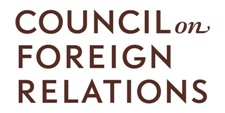
- Think Tank Home
- Experts
- Research Projects
- THINK TANK CENTERS
- PROGRAM AREAS
- BACKGROUND & ANALYSIS
- BOOKS AND REPORTS
- EVENTS ARCHIVE
- ADDITIONAL RESOURCES
home > think tank > research projects > Africa Program
Program Area
-
Africa Experts
 John Campbell
John Campbell
Ralph Bunche Senior Fellow for Africa Policy Studies
 Princeton Lyman
Princeton Lyman
Adjunct Senior Fellow for Africa Policy Studies
Africa Program
Africa is the poorest continent and has long suffered war, famine, and disease. But African leaders and international players are creating ways to restore peace, promote good governance, and upgrade health across the continent's 53 countries. African leaders have formed stronger regional and sub-regional institutions and committed their countries to policies and programs to stimulate economic growth and increase funding for education, health, and infrastructure.
Featured ProjectsSeptember 2009—Present
Roundtable Series on the United States' Strategic African Partners
Director: John Campbell, Ralph Bunche Senior Fellow for Africa Policy StudiesThe United States has struggled to implement a coherent foreign policy toward sub-Saharan Africa even as strategic interests in the region have grown. Addressing issues of national security, development, trade, human rights, environment and natural resources requires stable, dependable and well-governed regional partners. However, corruption, poor governance, conflict, environmental degradation, widespread poverty and malnutrition, and HIV/AIDS continue to bring untold hardship to a large majority of the region's 800 million inhabitants and undermine core U.S. interests in democracy and development. The Council on Foreign Relations Africa Studies Program Roundtable Series on United States' Strategic African Partners seeks to foster discussion about how the United States can play a positive role in the region by strengthening the capacity of states to provide for their people and working with other African democracies on interests of mutual concern. The Africa Program has a special focus on Nigeria and South Africa because of their size and strategic importance.
January 28, 2003—Present
Africa Policy Studies Roundtable
Staff: Princeton N. Lyman, Adjunct Senior Fellow for Africa Policy StudiesThe Africa Roundtable Series will meet periodically during the 2007-2008 programming year in both New York City and Washington, DC. As always, the series will seek to provide a representative sampling of the prospects and problems on the African continent, but special focus will likely be given to the evolving crisis in Zimbabwe, the ongoing attempts to stabilize the Great Lakes Region, and the political situation in Nigeria. During 2006-2007, the series hosted Amos Kimunya, Finance Minister of Kenya; Tony Leon, leader of the official opposition in South Africa; and Atiku Abubakar, Vice-President of Nigeria, among others.
Featured PublicationsMarch 5, 2010
Nigeria Fragmented and Unstable
Author: John Campbell, Ralph Bunche Senior Fellow for Africa Policy StudiesRegarding Nigeria, John Campbell says, "... paralyzed and divided government is the order of the day in one of Africa's most important countries."
January 19, 2010
Nigeria's Leadership Crisis
Author: John Campbell, Ralph Bunche Senior Fellow for Africa Policy Studies"President Yar'Adua's periodic illness since 2007, beyond depriving Nigeria of its leading regional role," states John Campbell, "has also created a succession crisis that raises the stakes for military adventurism."
January 15, 2010
Nigerians Press for Active Head of State
Author: John Campbell, Ralph Bunche Senior Fellow for Africa Policy StudiesJohn Campbell discusses how Nigeria's response to U.S. security measures against the country exposes its need for clear leadership.

December 30, 2009
Nigeria's Leadership Vacuum
Author: John Campbell, Ralph Bunche Senior Fellow for Africa Policy StudiesThe leadership void caused by the illness of Nigerian President Umaru Yar'adua could lead to domestic upheaval and a succession crisis, writes CFR's John Campbell.

December 28, 2009
Flight 253 and Nigeria's Troubling Trends
Author: John Campbell, Ralph Bunche Senior Fellow for Africa Policy StudiesThe charging of a Nigerian with trying to blow up a U.S. airliner casts new attention on Nigeria's growing Muslim militancy and social challenges, writes CFR's John Campbell.

December 9, 2009
How to Avoid Civil War in Guinea
Author: John Campbell, Ralph Bunche Senior Fellow for Africa Policy StudiesThe worsening political crisis in Guinea will require stronger UN involvement and greater efforts on the part of African leaders to avoid what could become a civil war and a massive humanitarian crisis, says CFR's John Campbell.
November 12, 2009
Nigeria Proposes Reform of Oil Industry
Author: John Campbell, Ralph Bunche Senior Fellow for Africa Policy StudiesNigerian President Umaru Yar'Adua's efforts to reform the oil and gas industry have the potential to upset the fragile Nigerian internal political balance among the regions, ethnic and religious groups, and patronage networks, writes John Campbell.
November 4, 2009
Nigeria: Progress Towards Rule of Law
Author: John Campbell, Ralph Bunche Senior Fellow for Africa Policy StudiesAmbassador John Campbell writes that under the presidency of Umaru Yar'adu, Nigeria is moving away from its corrupt system and towards the rule of law.
October 21, 2009
New U.S. Sudan Policy a 'Positive Development'
CFR's John Campbell says the new, more comprehensive policy for Sudan is "a positive development," and disagrees with those who say the approach offers engagement without requiring that the Sudanese government meet existing benchmarks.
July 13, 2009
From the Midwest to Mogadishu
Author: Steven Simon, Adjunct Senior Fellow for Middle Eastern StudiesSteven Simon discusses the investigation into twenty Americans who are believed to have joined a militant Islamist group in Somalia.
April 23, 2009
Bombing Somalia is a Dud
Author: Micah Zenko, Fellow for Conflict PreventionMicah Zenko argues that given the ineffectiveness of recent U.S. operations in Somalia, airstrikes against Somali pirates would be militarily and politically unsuccessful.
April 21, 2009
Prepared Testimony on Strengthening U.S. Diplomacy to Anticipate, Prevent, and Respond to Conflict in Africa
Author: Princeton N. Lyman, Adjunct Senior Fellow for Africa Policy StudiesApril 9, 2009
Obama's Lifeline to Pakistan
Author: Sundaa A. Bridgett Jones argues that "there are lots of reasons to worry that the president's plan may not be able to save Pakistan from itself."
January 15, 2009
Prioritizing the Middle East
Author: Sundaa A. Bridgett Jones argues, "respect and active engagement must start right away," in the Middle East.
November 15, 2008
No Justice, No Peace in Sudan
Author: Sundaa A. Bridgett Jones argues, "relative calm in South Sudan is no reason to make nice with a war criminal."
July 21, 2005
China's Rising Role in Africa
Author: Princeton N. Lyman, Adjunct Senior Fellow for Africa Policy Studies
September 2004
Giving Meaning to 'Never Again'
Authors: Princeton N. Lyman, Adjunct Senior Fellow for Africa Policy StudiesCheryl O. IgiriCouncil Special Report No. 5
This Council Special Report decries the tragically slow global response to the unrest in Sudan's Darfur region, stating that it shows that the international community still lacks the capacity to deal effectively with humanitarian crises. Looking at Darfur in the context of lessons learned from Rwanda, the report recommends ways to end the Darfur crisis and avoid future ones.
April 1, 2004
The Terrorist Threat in Africa
Author: Princeton N. Lyman, Adjunct Senior Fellow for Africa Policy Studies -
New Approach to Africa
Nuclear Energy Guide
Explore the past, present, and future of nuclear energy with this new online interactive.
The Global Oceans Regime
Explore the international oceans regime with a new interactive from CFR's program on International Institutions and Global Governance.
New Council Special Reports
Strengthening the Nuclear Nonproliferation Regime
 Paul Lettow proposes a comprehensive agenda for improvements to the nonproliferation regime, including tougher sanctions against transgressors, a criteria-based system to limit the spread of enrichment and processing technologies, and expansion of International Atomic Energy Agency authority.
Paul Lettow proposes a comprehensive agenda for improvements to the nonproliferation regime, including tougher sanctions against transgressors, a criteria-based system to limit the spread of enrichment and processing technologies, and expansion of International Atomic Energy Agency authority.The Russian Economic Crisis
 Jeffrey Mankoff argues that Russia's need to focus on repairing its economy during the global crisis gives the West an opportunity to deepen its economic engagement with Russia, which could bind Moscow more firmly to the liberal global economic order and encourage reform in both Russia and neighboring states.
Jeffrey Mankoff argues that Russia's need to focus on repairing its economy during the global crisis gives the West an opportunity to deepen its economic engagement with Russia, which could bind Moscow more firmly to the liberal global economic order and encourage reform in both Russia and neighboring states.Complete list of Council Special Reports
New Books
 In Paradise Beneath Her Feet, Isobel Coleman shows how Muslim women and men are fighting back with progressive interpretations of Islam to support women's rights in a growing movement of Islamic feminism.
In Paradise Beneath Her Feet, Isobel Coleman shows how Muslim women and men are fighting back with progressive interpretations of Islam to support women's rights in a growing movement of Islamic feminism.
 In this compelling book, Charles A. Kupchan explores how adversaries can transform enmity into amity, and exposes prevalent myths about the causes of peace.
In this compelling book, Charles A. Kupchan explores how adversaries can transform enmity into amity, and exposes prevalent myths about the causes of peace. With the insights of geopolitical experts and investors, the authors examine Israel's adversity-driven culture to offer prescriptions for a global economy on the rebound.
With the insights of geopolitical experts and investors, the authors examine Israel's adversity-driven culture to offer prescriptions for a global economy on the rebound.
Complete list of CFR Books
David Rockefeller Studies Program Contacts
For more information on the David Rockefeller Studies Program, contact:
James M. Lindsay
Senior Vice President, Director of Studies, and Maurice R. Greenberg Chair
+1.212.434.9626 (NY); +1.202.509.8405 (DC)
jlindsay@cfr.orgJanine Hill
Deputy Director of Studies Administration
+1.212.434.9753
jhill@cfr.org
Site Index
- Think Tank Home
- Experts
- Research Projects
- THINK TANK CENTERS
- PROGRAM AREAS
- BACKGROUND & ANALYSIS
- BOOKS AND REPORTS
- EVENTS ARCHIVE
- ADDITIONAL RESOURCES


